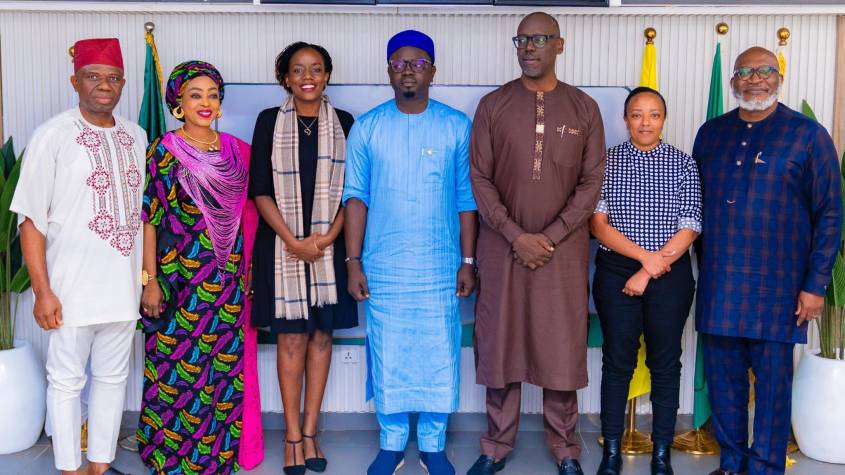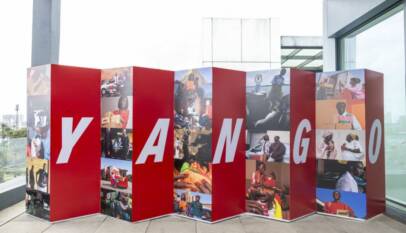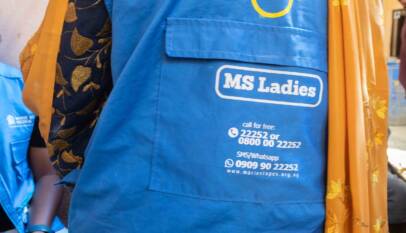OGP: How Nigeria Became a Global Model for Beneficial Ownership Transparency
Nigeria has emerged as a global model in beneficial ownership transparency—especially among developing and African countries—thanks to a bold combination of legal reform, political commitment, and civic collaboration under the Open Government Partnership (OGP).
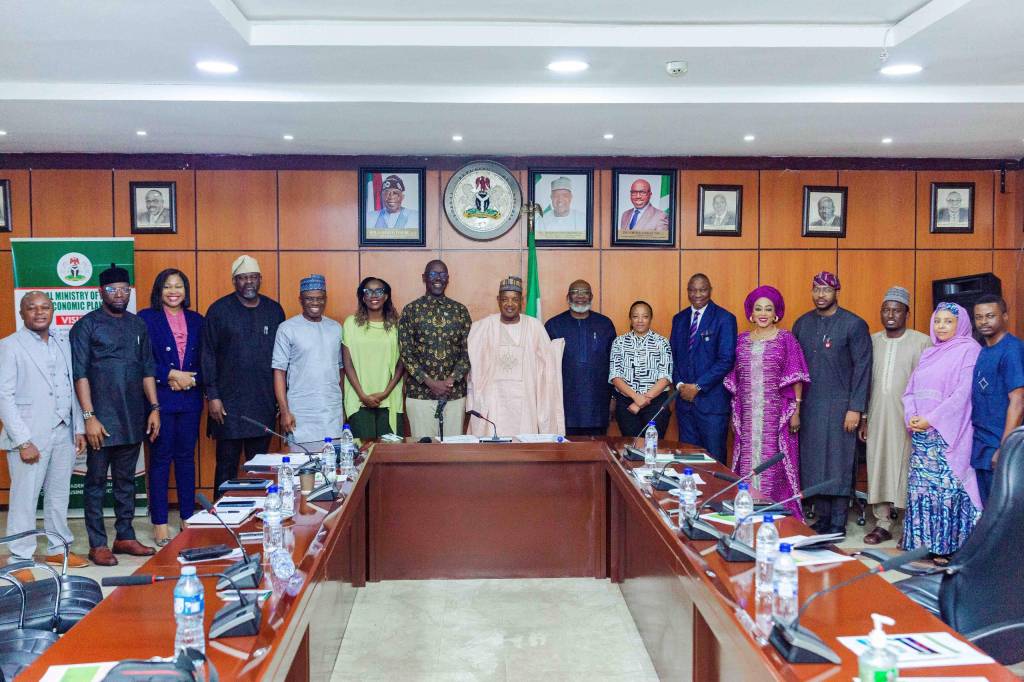
The Open Government Partnership (OGP) was launched by eight developed and developing countries at the 2011 United Nations General Assembly (UNGA), emerging from a shared desire of governments and civil society to strengthen the relationship between governments and civil society. The OGP aims to foster equal partnerships between governments and citizens—represented by Civil Society Organizations (CSOs), trade groups, and the private sector—to address issues that affect ordinary people.
Nigeria joined the Open Government Partnership (OGP) in July 2016 as its 70th member, beginning what will become a strong national commitment to promoting transparency, accountability, and citizen participation in governance. Since then, Nigeria has developed and implemented multiple National Action Plans (NAPs) in close collaboration with civil society and other non-state actors, advancing reforms that reflect the principles of open governance.
Since joining the OGP, Nigeria has recorded several key milestones across successive NAPs: NAP I (2017–2019) focused on fiscal transparency, anti-corruption, citizen engagement, and access to information and laying the groundwork for major reforms such as the Beneficial Ownership Register (BOR) and the Treasury Single Account (TSA).
Subsequently, NAP II (2019–2022) broadened the agenda to include public service delivery, extractives transparency (EITI+), and the institutionalization of open contracting practices. Just as NAP III (2023–2025) builds on past commitments while introducing new priorities such as climate governance, gender inclusion, digital governance, and justice reform.
Nigeria’s Leadership in Beneficial Ownership Transparency
Among Nigeria’s most notable achievements is the launch of the Beneficial Ownership Register (BOR), a major anti-corruption tool that has earned the country recognition as a global frontrunner in beneficial ownership transparency—particularly among African and other developing nations. In 2020, Nigeria became one of the first countries in Africa to establish a central, public BOR in line with its OGP commitments and recommendations from the Extractive Industries Transparency Initiative (EITI).
Nigeria’s BOR publicly discloses the real individuals—beyond legal entities—who ultimately own or control companies in the country. The register is publicly accessible, which is rare among countries in the Global South. The country has also taken concrete legal steps to mandate beneficial ownership disclosure, just as the Companies and Allied Matters Act 2020 introduced a legal obligation for companies to declare their beneficial owners. Similarly, the Petroleum Industry Act (PIA) 2021 requires full disclosure of ownership structures in the oil and gas sector.
Nigeria’s BOR aligns with global transparency standards such as the Financial Action Task Force (FATF) and the United Nations Convention Against Corruption (UNCAC). This positions Nigeria as a proactive and compliant country in combating money laundering, tax evasion, and illicit financial flows. Since coming into being in 2023, law enforcement agencies, journalists, and civil society actors have leveraged the BOR to investigate corruption, conflicts of interest, and fraud, which proves its efficacy as a governance tool.
Nigeria also holds the distinction of being the first EITI-implementing country to launch a national BOR for extractive companies, earning the country high rankings within the EITI framework and recognition as a global case study. Building on this momentum, Nigeria is now encouraging subnational governments to adopt similar disclosure standards—an effort supported by programmes such as the UK Foreign, Commonwealth and Development Office’s (UK FCDO) Partnership for Agile Governance and Climate Engagement (PACE).
Other accomplishments include the adoption of open contracting standards in public procurement; The expansion of the TSA and Integrated Payroll and Personnel Information System (IPPIS) to improve financial oversight, as well as enhanced civil society participation in the design and monitoring of governance reforms.
Despite notable progress, Nigeria’s OGP journey has faced several challenges. These include implementation gaps, inconsistent political will across different levels of government, limited public awareness of OGP commitments—both among citizens and some government officials—and resource and capacity constraints faced by civil society organizations and state actors.
Yet, these challenges present meaningful opportunities. Nigeria can leverage the OGP platform to, among others, Strengthen climate governance, digital transparency, and youth engagement; Expand subnational participation by onboarding more states into the OGP process; as well as align OGP efforts with national and international priorities, such as the Sustainable Development Goals (SDGs) and the National Anti-Corruption Strategy (NACS).
Highlights from the OGP Global Delegation’s Visit to Nigeria
Against this backdrop, a high-level delegation from the OGP Global Secretariat visited Nigeria in July 2025 to reinforce the country’s efforts toward developing and implementing its NAP IV (2025–2029). The visit focused on deepening the co-creation process, bolstering political support, and exploring avenues for reform implementation—particularly within the framework of Nigeria’s OGP commitments.
Led by OGP Global CEO Mr. Aidan Eyakuze and incoming OGP Global Chair Stephanie Muchai, the week-long working mission came at a critical juncture as Nigeria seeks to consolidate political will, strengthen civil society engagement, and galvanize international backing for its open government agenda. Ahead of the 2025 OGP Global Summit in October, the visit helped Nigeria articulate its vision for transparent, accountable, and participatory governance.
The mission also spotlighted the role of the PACE programme in translating national OGP commitments into meaningful subnational reforms. As a UK International Development-funded programme, PACE has emerged as a key technical partner in supporting the co-creation and implementation of open government reforms rooted in the principles of transparency, accountability, and citizen participation—especially in states such as Kaduna, Kano, and Jigawa.
Moreover, the visit highlighted how Nigeria is leveraging the OGP as a delivery platform for national priorities such as anti-corruption, service delivery, climate action, civic tech innovation, public procurement transparency, and youth engagement. In this context, PACE’s contributions to institutional strengthening, inclusive reform dialogue, and accountability mechanisms have been instrumental in advancing the OGP agenda at both the national and subnational levels.
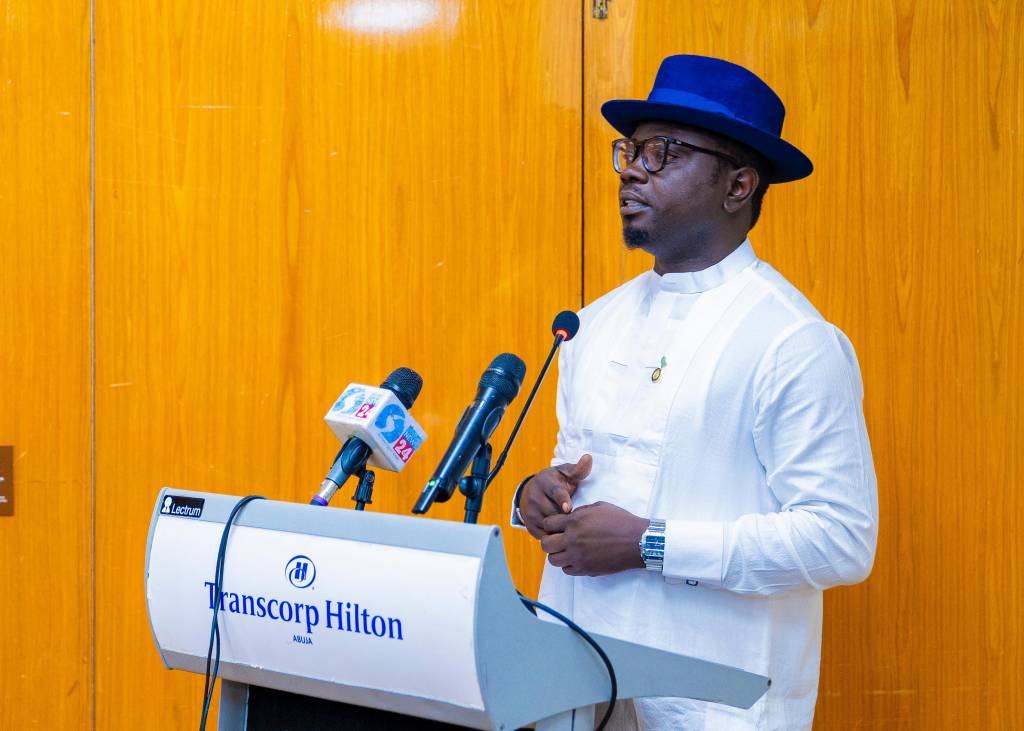
“Challenges Don’t Diminish Our Resolve” – Nigeria’s Youth Minister
Nigeria’s Youth Minister and Co-Chair of OGP Nigeria, Comrade Ayodele Olawande, while delivering the opening remarks at the National Steering Committee (NSC) meeting of OGP Nigeria with the visiting delegation from OGP Global, reaffirmed Nigeria’s readiness to fulfill its obligations under the OGP despite prevailing challenges. “These challenges do not diminish our resolve. I assure you that Nigeria remains fully committed to honoring its part of this global agreement. As Minister of Youth, I am particularly pleased to see the strong link between youth development and open governance.”
Olawande expressed enthusiasm about leveraging the OGP framework to deepen reform efforts and create lasting change, especially through the inclusion of young people in governance. He assured that NAP IV (2025 – 2029) will provide greater space for youth participation, engagement, and leadership, calling for continued support from the OGP Global to achieve greater impact.
The Minister said the OGP Global Summit, scheduled for October 7-9 in Vitoria-Gasteiz, Spain, presents a valuable opportunity for Nigeria to showcase its progress, share lessons, and strengthen partnerships for more inclusive and transparent governance. “We have made up our minds that the only path forward is to initiate reforms that future administrations can build on. This is about putting people first—and that means thinking about the future, not just the present.”
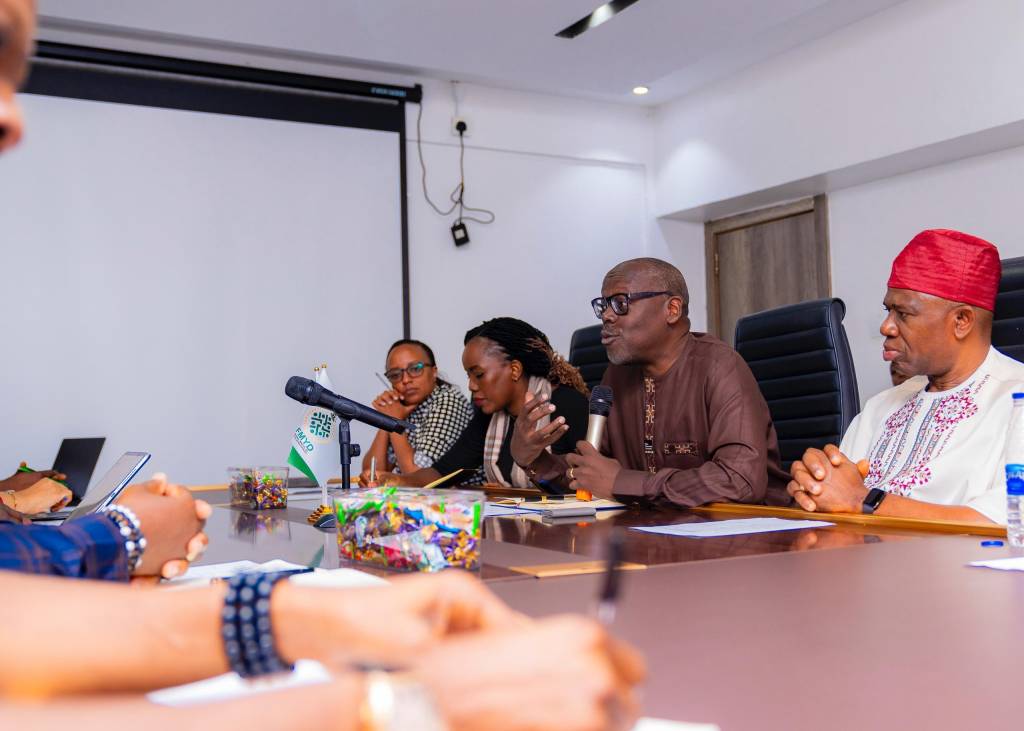
“Nigeria’s OGP Milestones Inspire Us All” – Global OGP CEO
In his remarks, OGP Global CEO Aidan Eyakuze commended Nigeria’s sustained commitment to reform and praised the country’s distinctive model of collaboration between government and civil society. He advocated for an “asset-framing” approach—focusing on potential and strengths rather than “deficits-framing” and problems—as a guiding philosophy for more effective, inclusive, and hopeful governance.
“Nigeria has chosen a different path—what I call an ‘asset-framing state of mind. It’s about building on what we have and envisioning the future we can create together. Back in 2016, when the idea of a Beneficial Ownership Register was floated, many said it couldn’t be done in Nigeria. But Nigeria said, ‘watch this space.’ And you did it. You passed the legislation, implemented it through the Corporate Affairs Commission, and in 2022, you won a global award,” he recalled.
Mr. Eyakuze commended Nigeria’s leadership in beneficial ownership transparency as a powerful example of what can be achieved through bold, people-centered reforms, and lauded the Bureau of Public Procurement (BPP) for its impactful role in safeguarding public finances. “Procurement may sound technical, even boring, but it is saving billions of naira. These are the kinds of quiet revolutions that matter.”
The Global OGP CEO also reflected on an emotional moment during his visit to the Ministry of Youth Development in Abuja, where he witnessed the impact of the Nigeria Youth Help Desk, encouraging Nigeria to continue showcasing the power of open and transformative governance.
“It was a deeply personal and empathetic response to the real issues facing young Nigerians every day—born from listening to the voices of youth during the EndSARS protests and beyond. This is what open government is about: not just policies, but dignity, co-creation, and responsive leadership. We will continue to look to you for inspiration. Show the world how dignity can be uplifted when citizens and government come together to shape their shared future,” he concluded.
“Civil Society at Heart of Nigeria’s OGP Success” – Non-state Actors OGP Co-chair
Ms. Obialunanma Nnaobi-Ayodele, Non-State Actors Co-Chair of OGP Nigeria, underscored the pivotal and transformative role of civil society in advancing the OGP agenda in Nigeria. She emphasized that Civil Society Organizations (CSOs) are no longer passive observers but active co-creators in driving Nigeria’s governance reforms, adding that women and young people are not simply included in the process—they are a driving force at the heart of OGP Nigeria.
“Nigeria’s civil society is vibrant and diverse. Since joining the OGP in 2016, we have worked side-by-side with government actors to ensure that transparency, accountability, and participation are not just slogans, but values that shape public life. Our journey through three National Action Plans (NAPs) has shown what’s possible when citizens are given the space to lead, to question, and co-own governance,” she said.
Ms. Nnaobi-Ayodele spotlighted the contributions of marginalized groups, particularly women and youth, who bring energy, urgency, and lived experience to the open government movement, emphasizing that they are not on the sidelines. In that spirit, she announced a civil society push to ensure meaningful youth representation in Nigeria’s upcoming NAP IV for 2025 – 2029 period.
“We want every commitment in the plan to mainstream youth voices—and ensure at least one directly addresses their needs. We thank our co-chair, the Honourable Minister for Youth Development, for championing youth participation in open governance. But we also need continued engagement from all stakeholders to make NAP IV a people-driven success,” she concluded.
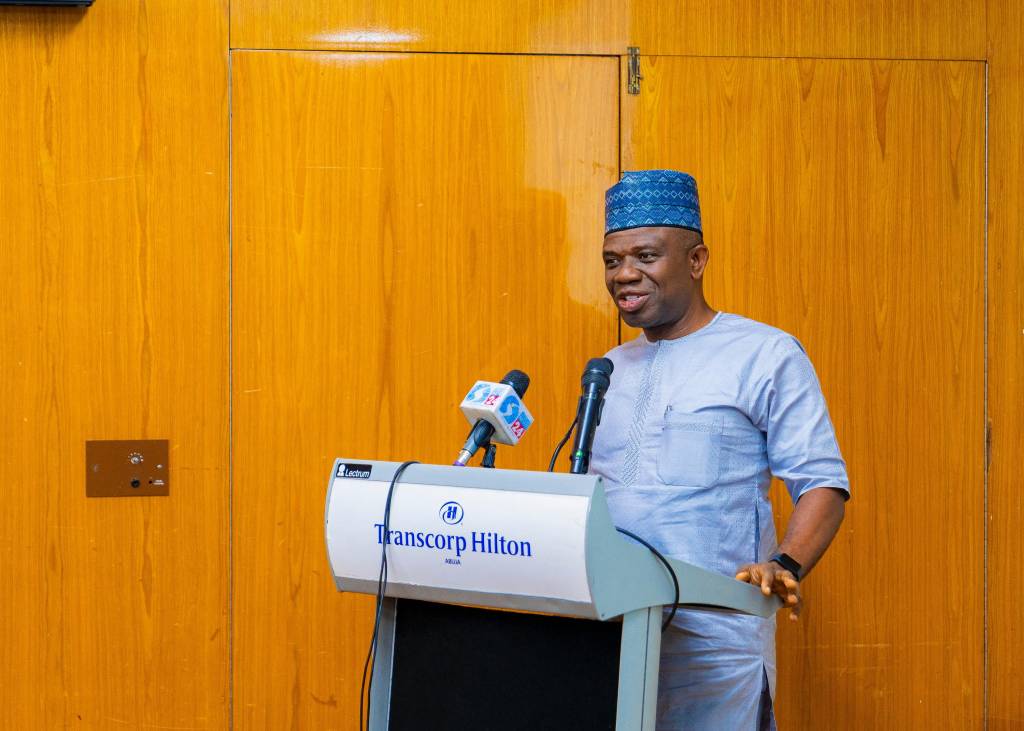
“Citizens’ Ownership, Inclusion Essential to OGP’s Success” – PACE Chief
In his remarks, Mr. Ifeanyi Peters Ugwuoke, National Team Lead of the PACE programme, underscored a key challenge in Nigeria’s OGP journey: how the principles of open government are communicated and understood by ordinary citizens. He thus emphasized that effective communication must be anchored in local realities and everyday experiences, cautioning that overly technical language can alienate the public and hinder meaningful engagement.
“The real question is: how are we framing and communicating the principles of the OGP? Do citizens genuinely feel connected to this partnership? Do they see its relevance in their daily lives? If we don’t present the OGP in ways that show clear, tangible benefits, it risks remaining a conversation confined to elites,” he said.
Mr. Ugwuoke shared insights from recent visits to Enugu and Abia States in Nigeria’s Southeastern region, where local communities expressed uncertainty about the relevance of the OGP, highlighting a significant gap in public understanding and engagement. He emphasized that fostering community ownership and inclusion is vital to the success of the OGP, underscoring the urgent need for more effective framing and communication of the initiative in Nigeria.
“The narrative has to change. The framing must shift to reflect a real partnership—one that is co-created between citizens and government. As Nigeria prepares its next National Action Plan, there must be inclusive dialogue. Every stakeholder, from government institutions to grassroots communities, must see OGP as theirs,” Ugwuoke urged.
Since joining the OGP nearly a decade ago, Nigeria has steadily built a reputation as a reform-oriented nation dedicated to transparency, accountability, and inclusive governance. Through successive NAPs, the country has enacted significant reforms—including the establishment of a public BOR, the expansion of open contracting practices, and the digitization of public services. Nigeria’s OGP process is characterized by a strong culture of collaboration between government institutions and civil society actors, reflecting a spirit of co-creation and joint implementation.

